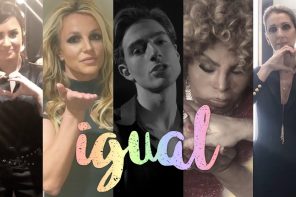This piece was written approximately 16 hours before news of Mubarak’s resignation was made public.
It’s been a little over two hours since Mubarak gave his speech; twenty-four hours since the Muslim Brotherhood announced it would not be fielding a presidential candidate in post-Mubarak elections; a week since Iran’s Grand Ayatollah Khamenei tried to paint the Egyptian Revolution a shade of ‘79; eighteen days since protests began in Egypt; and thirty-seven days since Mohamed Bouazizi died in Tunisia from self-immolation, sparking the deepest and most widespread changes within the Arab world in generations.
In the hours before Mubarak appeared on state television, rumours about his impending resignation swirled through the streets of Cairo, shooting across time and space through Twitter, Facebook, bouncing off satellites to millions of televisions around the world. The mood in Tahrir swelled with the crowds, as more and more people hit the streets, anticipating the sweetness to come. I spoke briefly to a friend sitting in a café close to Tahrir. “We’re just waiting, we’re on the edge, he was supposed to appear half an hour ago. There’s a rumour that the Army around the Presidential Palace have gone. We shall see inshallah…”
On the other side of Mubarak’s second televised address since protests began in Egypt, I still cannot entirely believe what I heard. Commentators across the spectrum are also expressing shock at Mubarak’s words. Through the shock, however, one idea shines clearly, like an indestructible and beautiful diamond: Mubarak’s time is at an end. And his end signals the end of an era when it was acceptable for an Arab strongman to refer to the people as his children. It’s over.
In the moment of realization that it’s over, comes the shock of another realization: Something new is coming. The moment of birth dawns, flickering with the first rays of a new sunrise, as the stars of a very dark and cold winter night slowly fade from the sky. Perhaps less obvious than the end of the old, the faint contours of something new are emerging counterpoising the death of the oh-so-very-tired. Visceral, extremely bloody and painful, new life is new life, to be celebrated in all its mewling imperfection. It signals new beginnings, new possibilities and new terrains.
What form will new life take? What is the nature of a new Egypt? Is it tall and strong? Does it have a mind of its own? What color will it be? Red, blue or green? Will it look different from what we expected? What developmental trajectory will the new Egypt carve for itself? What forces, old and new, will seek to shape it? Is the destiny of all nations the end-state of a liberal democracy?
The Mexican “deprofessionalized” intellectual Gustavo Esteva once said that with the international development and aid industry, a people’s dreams have already been dreamt for them. As the Egyptian people arise to shape a new future, what dreams are they still dreaming? Is there an opportunity here to exercise political imaginations and create something that does not exist?
If we, just for a tiny moment, suspend the dominant fear of religion coming from the West, what do we hope for? If we stop operating from a place of fear and start operating from a place of imagination and possibility, then what can a new Egypt look like? Is it possible to start looking for signs of the truly new? Can we protect these seeds and then start to nurture and grow them in the coming months and years? Can Egypt forge an evolutionary leap when it comes to the tired old nation-state? Is there a role for Islam in the formation of a new state?
As we continue to fight, to heal, to celebrate and head back to our homes, let us carry a simple question with us: What do we want a new Egypt to look like?


